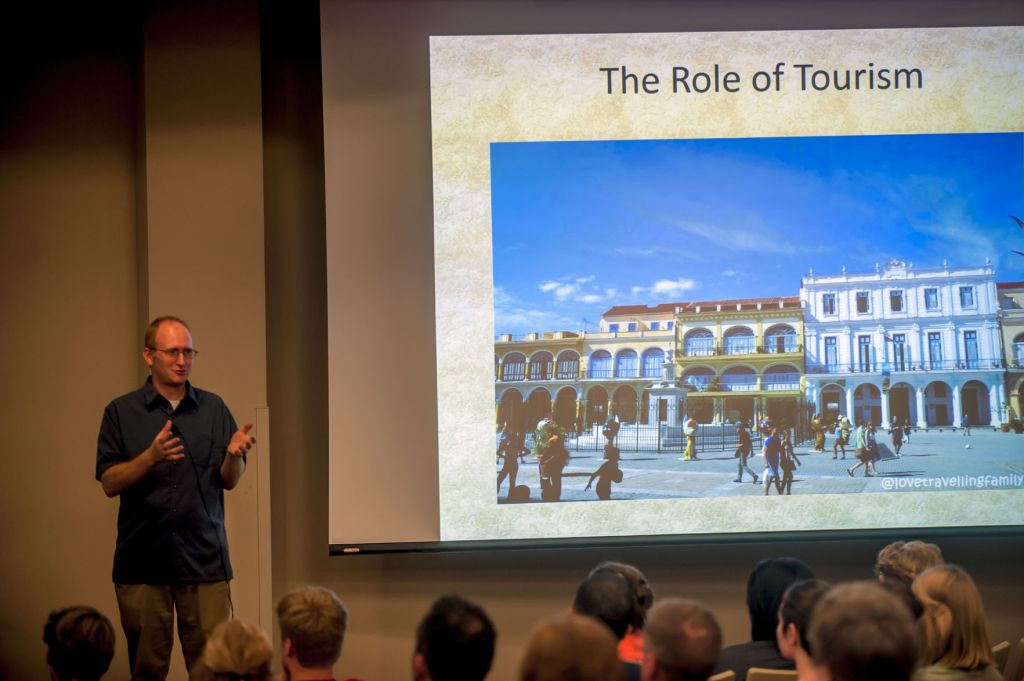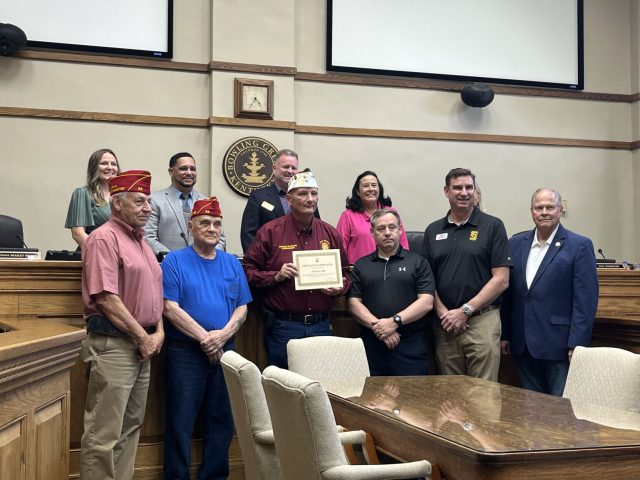WKU kicks off International Year of Cuba
Published 8:00 am Wednesday, September 5, 2018

- Western Kentucky University associate history professor Marc Eagle speaks Tuesday at Gary Ransdell Hall.
Western Kentucky University kicked off its International Year of Cuba on Tuesday as two history professors peeled back the curtain and offered students a glimpse into the country’s past and present.
For associate professor Marc Eagle, who helped lead the presentation, the story of Cuba and the U.S. is one dominated by misunderstandings.
Trending
“It’s worth talking a little bit about how the U.S. kind of continually misunderstands Cuba,” Eagle said, explaining U.S. involvement in the Spanish-American War in the late 1800s.
At the time, Eagle said, the U.S. was drawn into the war by the chance to test its Navy, a desire to protect its investments in Cuba and a long-standing notion to annex the country.
But for Cuban rebels hoping to forge a new, multi-racial Cuban identity, “they really felt like these Yankees came in and stole … their revolution.”
Andrew McMichael, associate dean of the Potter College of Arts and Letters, co-led the presentation with Eagle to a packed auditorium at Gary Ransdell Hall. The event, called Cuba 101, kicks off a yearlong program with opportunities to learn about the country’s history and culture.
This year’s program, part of an ongoing annual series, will feature exhibitions, visits from an author and guest lecturer and a dinner highlighting Cuban and Caribbean cuisine, among others.
The next event is a Cuban Film Festival at 7 p.m. Sept. 11 in Cherry Hall 125. A full list of events is available online at www.wku.edu/news/ articles/index.php?view= article&articleid=6829.
Trending
The event Tuesday offered students a brief look at Cuba’s history as a Spanish colony, its currently troubled economy and its complicated relationship with the U.S.
McMichael noted that the presentation was Cuba filtered through both professors’ experience in the country.
For much of its history, Cuba’s economy has remained dependent on agriculture, something that remains true today. Fields are mainly plowed by animals and crops harvested by hand, McMichael said. Tobacco, rum and rice are some of its biggest crops, he said.
“You’re really looking agriculturally at an early 19th-century economy,” he said, adding many young people leave the island. “The economy doesn’t seem to hold a lot of hope to them.”
Slavery has historically been a key part of Cuba’s economy. It was among the last countries in the world to abolish it. Although racism is officially illegal in Cuba, the important echelons of society are occupied by people with lighter skin, McMichael said.
In 1998, a visit by Pope John Paul II helped pave the way for more religious freedom. Before then, most Cubans were practicing a hybrid form of Catholicism that borrowed from African traditions, called Santeria.
“It combines elements of western African religions with Catholicism where saints are combined with African spirits and temples and altars are built in houses,” McMichael said, describing sacrifices of money to spirits in people’s homes he visited. “Most Cubans don’t see a disconnect between the two religions.”
The event also covered key events between Cuban and U.S. relations, including the Bay of Pigs in 1961 when the U.S. attempted to overthrow Fidel Castro’s regime with an armed invasion of Cuban exiles. The blunder moved Cuba closer to the Soviet Union and sparked the Cuban missile crisis one year later.
“This was the most tense point in the Cold War,” said Eagle, referring to Soviet missiles based in Cuba.
Hayden Grace, a senior from Hopkinsville who attended the presentation, said it did a good job of representing Cuba outside of a purely American context. Although he said the U.S. has often projected its values onto the country, he attended because was interested in its history and culture.






